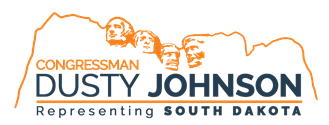Guest Column: In politics, “What’s past is prologue” by Kristi Golden

“What’s past is prologue.” That timeless phrase from Shakespeare reminds us that history doesn’t just repeat itself—it sets the stage for what comes next. In politics, as in life, the lessons we ignore are often the ones we most need to revisit.
Today, the South Dakota Republican Party finds itself at a critical juncture. We can either learn from the past and build a stronger, more unifying future, or repeat the mistakes that fracture coalitions and squander majorities.
The Republican Party rose to power by championing economic freedom, personal responsibility, and strong communities. Yet some regressive voices are now replicating the very mistakes that undo successful movements by reacting to the far left’s overreach not with steady leadership, but with reactionary politics that abandon the very foundations of our party’s past success.
Progressive identity politics pushed too far on issues such as radical gender ideology, open borders, and calls to defund the police. Many Americans were rightly outraged. But in that anger, a regressive faction within the Republican Party has broadened its backlash beyond those issues. Now, it’s not just radical policies under fire—it’s anything labeled “establishment,” including the conservative institutions and strategies that built our current majority.
This isn’t just bad politics. It’s self-sabotage.
In the rush to purge experience and elevate outrage, problem-solving is replaced with performative politics. Identity politics reemerges in a different jersey, and the party slips into a trap it once avoided.
They mistakenly believe they are emulating the leadership styles of President Donald Trump, who tapped into working-class frustration in a way only he could, using his platform to reach voters who felt ignored and disrespected. He turned that into a winning message, but his ability to do that successfully is rare.
What the regressives don’t seem to understand is that history has demonstrated movements built solely on grievance may win headlines, but they don’t govern. They burn hot and burn out.
Here in South Dakota, we’ve been successful because we’ve focused on issues that matter: strong communities, limited government, individual responsibility, and economic opportunity. But those core themes are now being drowned out by tribalism. When the state party is more focused on blacklists than ballot wins, we lose sight of who we’re supposed to be serving.
On the national level, we are seeing the fracturing of identity politics play out on the left. In New York, the election of Zohran Mamdani, a democratic socialist, has alarmed moderate Democrats. His platform, built around rent freezes, higher taxes, and pro-Palestinian rhetoric, may excite a niche base but threatens to alienate working families.
On the right, we’re seeing similar fractures emerge. In South Dakota, a fixation on purity has led to damaging infighting. Our state party has attacked a sitting Republican U.S. Senator. It has remained silent on hate speech. It has branded long-serving conservatives as RINOs. Blacklists are circulated. Loyalty tests are given more weight than legislative success. The result? Donors are backing away. Campaigns are struggling to organize. And volunteers don’t rally around circular firing squads.
This is not a strategy. We are witnessing the breakdown of a once-great party.
The road to a majority is not paved with exclusion. It requires building coalitions, not burning bridges. Ronald Reagan knew this well. His 1984 reelection was one of the most dominant in American history, not because he demanded total agreement, but because he offered a vision that brought people together. He united working-class Democrats, limited-government libertarians, and traditional conservatives around shared values and principles. Reagan once said, “The person who agrees with you 80 percent of the time is a friend and an ally, not a 20 percent traitor.” That principle is in direct contrast to today’s purity politics.
We should not lose sight of the values that have made South Dakota strong. Economic freedom. Individual empowerment. Opportunity for all. That’s not how we meet the needs of South Dakotans who are worried about wages, affordable housing, property taxes, childcare, and opportunity.
Reagan believed a rising tide lifts all boats. The far left wants to decide which boats are allowed to rise. The regressive right wants to decide who’s allowed in the boat. But real conservatives lift everyone.
But we won’t win by mimicking the left’s worst instincts. We can’t afford to fall into the same echo chambers, the same lazy tribalism, the same rejection of critical thought.
Anger can spark action, but leadership turns action into lasting progress.
If Republicans want to maintain and expand our majority, we need to stop confusing outrage with strategy and start governing with vision, purpose, and principle. That’s how we win. And more importantly, that’s how we serve.


 Apparently, X-senator Julie Fry Mueller’s husband is running for the open seat on the South Dakota Republican Party executive board
Apparently, X-senator Julie Fry Mueller’s husband is running for the open seat on the South Dakota Republican Party executive board 
